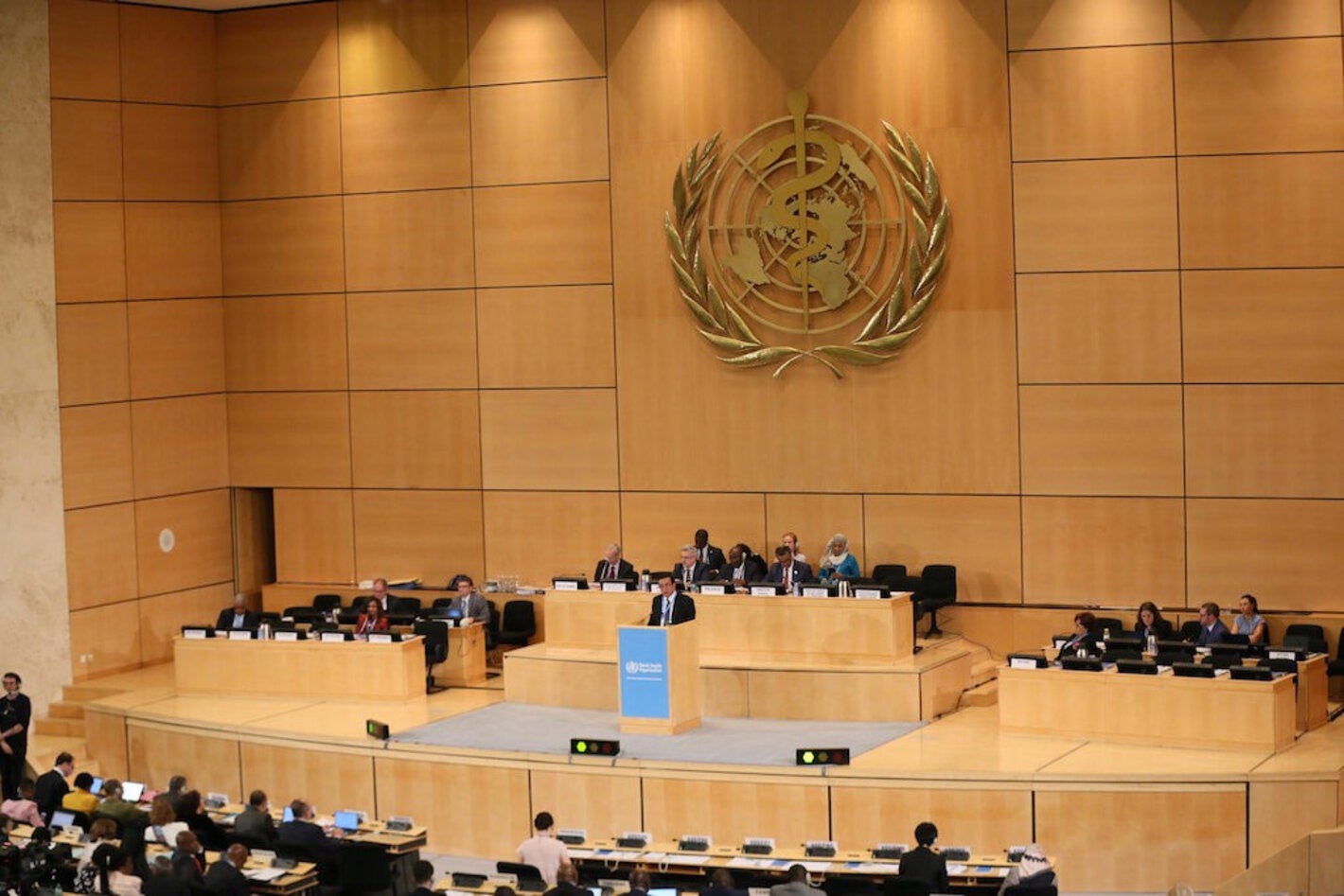
Geneva, 23 May 2017 (PAHO/WHO) - World Health Assembly delegates today agreed on an ambitious new strategic plan for the next five years. The Organization's 13th General Programme of Work (GPW) is designed to help the world achieve the Sustainable Development Goals - with a particular focus on SDG3: ensuring healthy lives and promoting wellbeing for all at all ages by 2030.
It sets three targets: to ensure that by 2023, 1 billion more people benefit from universal health coverage; 1 billion more people are better protected from health emergencies; and 1 billion more people enjoy better health and wellbeing. WHO estimates that achieving this "triple billion" target could save 29 million lives.
Speaking to the Assembly, Director-General, Dr Tedros Adhanom Ghebreyesus told delegates that the new strategic plan was ambitious because "it has to be."
Delegates noted that the Organization will need to make a number of strategic shifts to achieve these targets, notably to step up its public health leadership; focus on impact in countries; and ensure that people can access authoritative and strategic information on matters that affect their health.
Key topics during this World Health Assembly
Today, the debate turns to WHO's work in emergencies. Over the coming days, delegates will make decisions relating to the International Health Regulations (2005), the Pandemic Influenza Preparedness Framework, noncommunicable diseases (NCDs), cholera, tuberculosis, snakebite, physical activity, digital health, assistive technology, polio virus, and health conditions in the occupied Palestine territory. The Assembly will also discuss other topics including access to essential medicines and vaccines, and women's, children's and adolescent's health.
Region of the Americas committed to universal health
Yesterday, ministers and delegates from the Americas began sharing their views on how to achieve "Health for all: Commit to universal health coverage", the theme of general discussion at the plenary meeting of the 71st World Health Assembly.
The Region's health ministers explained the measures they have taken to attain that objective and reaffirmed their commitment to achieving universal health.
For more information on the commitment of the Region of the Americas to universal health
Side events
Primary health care is a key component that must be in place for achieving universal health coverage and the objective of health for all, and this was the main topic at an information session yesterday, with the participation of the Director of the Pan American Health Organization (PAHO), Carissa F. Etienne.
Closing the event, Etienne said how happy and hopeful it made her to hear that "health for all" is once again a key term used in public health discussions, and that primary health care is recognized as having a key role in achieving universal health. She listed the characteristics that primary health care should have in this new phase, to effectively ensure universal health.
The health ministers of Argentina, Ecuador, and Jamaica participated in an itinerant event intended to stress the importance of Member States actively participating at the United Nations High-Level Meeting on noncommunicable diseases. The ministers discussed the burden that these diseases are putting on their countries and the measures they are taking to address them. They all agreed that greater political commitment and especially action is vital for addressing the prevention and treatment of these diseases.
As the day drew to a close, the PAHO Director met with the health ministers of the countries that are part of the Caribbean Community (CARICOM) to review the regional bloc's specific health issues.



